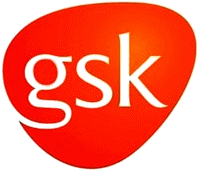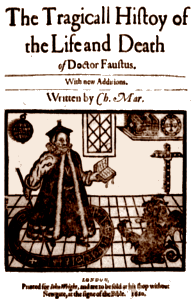
Pharmalot: WSJBy Ed SilvermanJuly 28, 2014The scandal over bribery allegations in China has taken another discouraging turn for GlaxoSmithKline with the news that both the Federal Bureau of Investigation and Securities and Exchange Commission are conducting probes of the drug maker’s activities there, according to The Wall Street Journal. The disclosure comes amid ongoing turmoil for the drug maker after Chinese authorities recently accused the former head of Glaxo operations in China of ordering subordinates, his sales team and other employees to bribe hospitals, health care organizations and others on a large scale.
The drug maker tells the paper that it is cooperating with Chinese authorities and informed the U.S. Justice Department and the SEC of the Chinese investigation. A Glaxo spokesperson declined to comment to the paper about the FBI interviews, saying talks with regulators are confidential. The interest by U.S. authorities is not surprising, given that Glaxo disclosed in 2010 that U.S. authorities contacted the drug maker about its overseas operations as part of a wider probe into dealings by the pharmaceutical industry in other countries and the Foreign Corrupt Practices Act. The agencies more recently began looking at Glaxo practices in China following the allegations, the paper writes.
Meanwhile, bribery allegations concerning Glaxo operations have spread to other countries. Last week, Syria was added to a list that now includes Lebanon, Jordan, Iraq and Poland, according to a report that recounted information sent to Glaxo executives by a whistleblower. The scandal in China, of course, endangers Glaxo’s ability to build its business in a crucial market, but also undermines a pledge by Andrew Witty, the Glaxo chief executive, to transform the drug maker into a leading progenitor of improved business practices in the pharmaceutical industry…
Pharmagossipby Jack FridayJune 5, 2014GlaxoSmithKline has confirmed it is going to pay a massive fine after admitting it mis-promoted a range of drugs in the US. The pharmaceutical company stated that it will pay $105 million [£63 million] settlement with 44 US states and the District of Columbia following the way the firm promoted anti-depressants Paxil and Wellbutrin and asthma medication Advair.
However, GSK did not admit any wrongdoing regarding the promotion of the medication and insisted that the money it is paying out is in relation to previous issues. "We don’t feel like this is who we are today," GSK spokeswoman Mary Anne Rhyne told the BBC. "These are historic matters – they relate back to the federal government settlement in 2012 so some of these events are as long ago as 14 years"…
My point is that when Mary Ann Rhyne says "These are historic matters," She means to imply that they are part of a distant past and no longer true. More accurately, these matters are the history of GSK since it came into existence in 2000 through merger, and persist to the present – obviously. Since the $3 B settlement in 2012, we’ve heard the "turning over a new leaf" routine over and over, but the truth is that it should have been "turning over new rocks" and finding some dark creature underneath each and every one of them. Is that a GSK problem, or a PHARMA problem? Is that a GSK history or a PHARMA history? Is corruption the history of PHARMA?
I would find it very hard to answer that question with a "No." Personally, I think I must’ve come into things during a lull period. I started medical school in 1963 right after the major reform of the Kefauver/Harris Act. I had a Lilly doctor bag, stethoscope, tuning fork, and reflex hammer. I learned a lot of anatomy from the CIBA atlases drawn by F. Netter. All pens and prescription pads had some pharmaceutical company’s name somewhere. I even knew a few detail men. But I don’t recall having any idea what company made what drug through medical school, through a medicine residency, through the Air Force, or during psychiatric training.That may be an artifact of training in big charity hospitals. My first awareness of what company made what drug came when Prozac came along in 1987 [and thereafter]. I never saw detail reps once in practice, and at medical meetings, I snunk through the exhibit areas collecting pens, pads, and rubber body parts [office supplies] while the pretty [and handsome] reps were otherwise engaged. I’ve learned that was an idiosyncratic way to be.
 But I think, as I said, I came in a lull. It appears that the forces of regulation in the universe have been chasing the Pharmaceutical Industry from its origins in the days of Patent Medicines to the present, only to be periodically thrown off the scent by good behavior after one or another reform movement. But when things settle down, they’re up to their old tricks. We put up with their walks on the wild side because we count on them for new drug development. My own take on all of this is that it’s always a Faustian Bargain guaranteed to come to no good end, and we’d best rethink the whole thing. This may well be an area where capitalism can never work. It is really not a "free enterprise" in that patients, and to some extent doctors, are a captive audiences under the current system. And as for GSK, enough is long past enough…
But I think, as I said, I came in a lull. It appears that the forces of regulation in the universe have been chasing the Pharmaceutical Industry from its origins in the days of Patent Medicines to the present, only to be periodically thrown off the scent by good behavior after one or another reform movement. But when things settle down, they’re up to their old tricks. We put up with their walks on the wild side because we count on them for new drug development. My own take on all of this is that it’s always a Faustian Bargain guaranteed to come to no good end, and we’d best rethink the whole thing. This may well be an area where capitalism can never work. It is really not a "free enterprise" in that patients, and to some extent doctors, are a captive audiences under the current system. And as for GSK, enough is long past enough…
“This may well be an area where capitalism can never work.” — Mickey! An opinion after my own heart.
At least the religion of the free market can never work…..